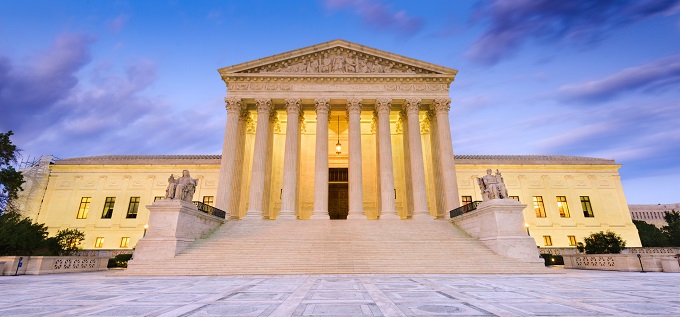A reaffirmed commitment to access, student success
By Matthew Dembicki
July 5, 2023
As expected, there was a tidal wave of responses from all sides of the issue when the Supreme Court on Thursday released its ruling that rejects affirmation action in college admissions. And while advocates are still reviewing the decision and its implications, it will undoubtedly alter the recruitment and enrollment practices of many selective colleges and universities.
Although community colleges are open-access institutions, two-year college leaders noted yesterday that access and completion remain challenges for all higher education institutions, especially at community colleges.
“Community colleges proudly stand on a pillar of access, and while our colleges are not directly impacted by the Supreme Court decision to end affirmative action in college admissions, the data continues to show that minority students are underserved in higher education,” Walter Bumphus, president and CEO of the American Association of Community Colleges (AACC), said in a statement. “It is critical that despite this decision, higher education remains committed to true equity in admissions and attainment for all students. It is imperative that we continue to preserve access while working to eradicate attainment gaps associated with income, race, ethnicity and gender. At AACC, we remain committed to advancing equity in attainment for all students and urge leaders and policymakers to examine current systems and policies that serve as barriers to admission, attendance and completion for underrepresented students.”
Some community college leaders issued statements reassuring that their institutions’ commitment to access, which leads to opportunities. Meghan Hughes, president of the Community College of Rhode Island (CCRI), said that CCRI is committed to equitable access and providing a welcoming and inclusive environment for individuals from all racial and ethnic backgrounds.
“We are dedicated to cultivating a teaching and learning environment that deeply values our students’ rich and unique perspectives. Our steadfast commitment to affirmative action is integral to advancing equitable opportunities and ensuring that every member of our community has equitable access to education and resources. This commitment remains unwavering regardless of today’s Supreme Court decision,” she wrote.
Nearly 100 former college presidents — including more than 15 former leaders of community colleges — signed a letter expressing their concerns about the impact of the decision, which they argued could have implications elsewhere.
“The Court’s decision will have ripple effects far beyond college campuses, stymying the efforts of businesses across the country to diversify their workforces and to serve a changing consumer landscape. The Court’s move clears the way for opponents of diversity to turn back the clock,” the letter said.
In a fact sheet released Thursday after the decision, the U.S. Education Department (ED) and Department of Justice said that they will provide resources to colleges and universities “addressing lawful admissions practices” within the next 45 days, as colleges prepare for the next application cycle. ED said it will also provide assistance to colleges and universities in administering programs to support students from underserved communities.
This article originally appeared in CC Daily.



